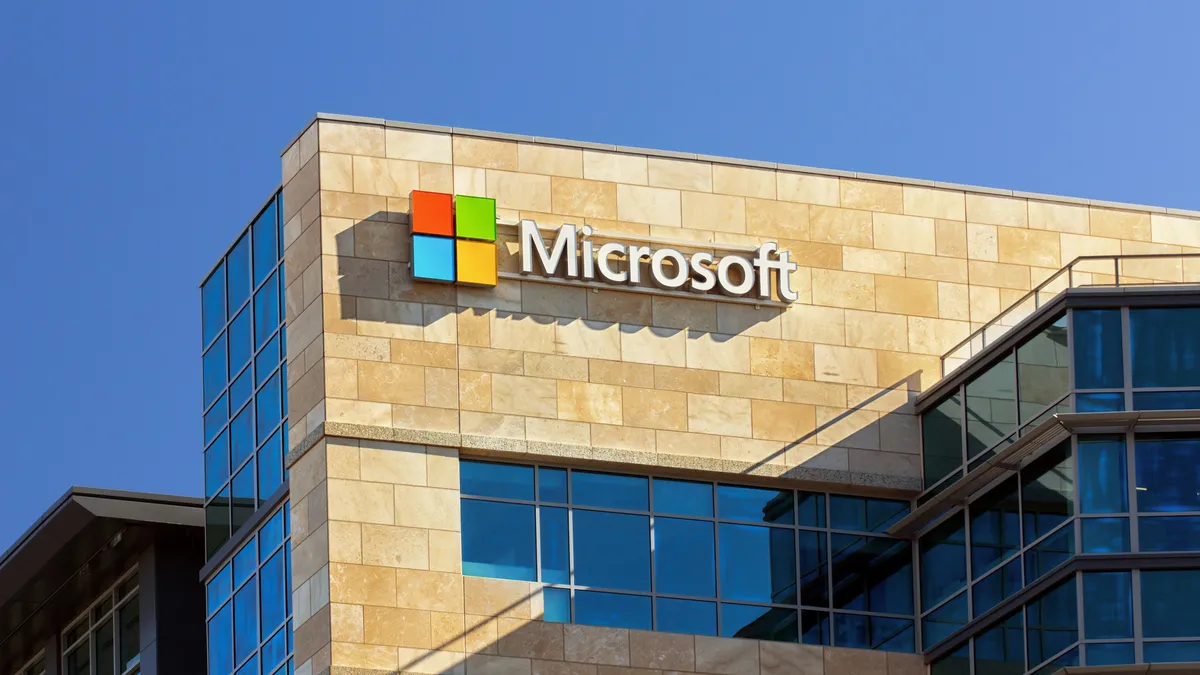Dive Brief:
- Microsoft and Wells Fargo say they are under regulatory scrutiny for their plans to increase diversity and inclusion. Microsoft’s corporate vice president and general counsel, Dev Stahlkopf, said in an Oct. 6 blog post the company received an inquiry from the U.S Department of Labor's Office of Federal Contract Compliance Programs (OFCCP) regarding whether a pledge it made this summer — to double the number of Black and African American contributors, managers and executives in its U.S. workforce by 2025 and to invest $150 million over five years in its diversity and inclusion programs — constitutes unlawful discrimination on the basis of race.
- The tech giant said OFCCP requested that it prove that its actions are not illegal race-based decisions. "Emphatically, they are not," Stahlkopf said. "We look forward to providing the OFCCP with this information and, if necessary, defending our approach," he said, adding that Microsoft "knows full well how to appropriately create opportunities for people without taking away opportunities from others."
- San Francisco-based lender Wells Fargo received a similar letter around the same time, according to HR Dive sister publication, Banking Dive.
Dive Insight:
Numerous employers this year announced initiatives to improve diversity and inclusion after the killing of George Floyd in May. Microsoft announced its plans in June and Wells Fargo also committed to doubling the number of black leaders in its corporation by 2025, going even further to announce that diversity efforts would be a factor in determining executive pay.
More than a dozen U.S. companies also signed onto the "Board Challenge," pledging to add a Black director within the next year and Reddit co-founder Alexis Ohanian resigned from his company's board, requesting that a black business leader take his place.
However, the Trump Administration seems to be pushing back against such efforts. President Trump in a Sept. 22 executive order barred federal contractors from conducting diversity and inclusion training that includes "divisive" components such as white males being asked to acknowledge "privilege." Several days later, OFCCP announced the establishment of a hotline and email address so employees could submit complaints regarding "offensive and anti-American race and sex stereotyping and scapegoating" for the agency to investigate.
States, on the other hand, are considering mandates that would require board diversity. California, in fact, has enacted laws requiring publicly held companies to ensure boards have at least one woman and one indvidual from an underpresented group, defined as someone who self-identifies as "Black, African American, Hispanic, Latino, Asian, Pacific Islander, Native American, Native Hawaiian, or Alaska Native, or who self-identifies as gay, lesbian, bisexual, or transgender." Those both are facing judicial challenges, however.
OFCCP’s inquiries seemingly reflect a shift at the agency. In a September settlement with OFCCP, Wells Fargo agreed to make job offers to 580 applicants and pay $7.8 million in back wages and interest to settle the agency's allegations of hiring discrimination against Black individuals and women. That action related to a "routine review of hiring data from six to 10 years ago in a small number of U.S. geographies," Peter Gilchrist, a Wells Fargo spokesman, said at the time.












